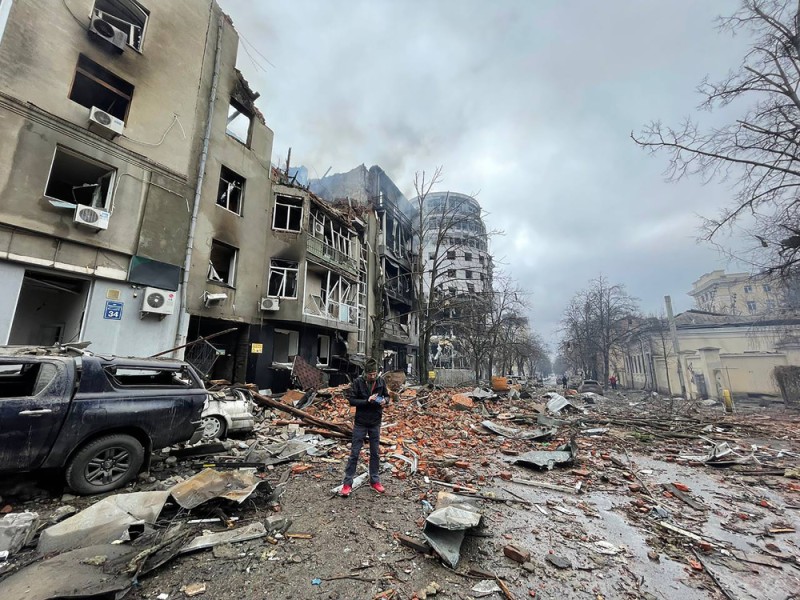On May 12, 2023, during its recent summit in Reykjavik, Iceland, the Council of Europe’s Committee of Ministers agreed to create a mechanism to receive claims for damages caused by the Russian crime of aggression in Ukraine. The committee’s resolution, which establishes an international register of damages, implements a recommendation that the UN General Assembly made during its eleventh emergency special session on Ukraine in November 2022. The resolution was joined by 40 of the council’s 46 member countries, as well as Canada, Japan, the United States, and the European Union. The new registry is intended to receive information on claims of damage, loss, or injury caused by Russia’s invasion of Ukraine since February 24, 2022; categorize the claims; and assess their eligibility for future adjudication or compensation.
Many of the register’s chief proponents are hailing its creation as a key step toward accountability for the many violations of international law that Russia has committed in or against Ukraine since the invasion. It is certainly a positive development that Ukraine and the international community are pursuing accountability measures beyond criminal prosecution, which they have thus far prioritized over addressing the needs and demands of the victims. Indeed, for Ukrainians most affected by the war, a victim-centered justice entails multiple remedies, including humanitarian assistance based on acknowledgment and repair.
However, the register alone, as with any other single remedy, will not be sufficient to address the multitude of harms caused by the war. Ukrainian victims and their advocates would be well advised to manage their expectations regarding the register, considering the process applied to create it and its proposed function.
With respect to the process, experience has shown that it is crucially important to involve victims at every stage of a transitional justice process, including by consulting them about their needs and demands for justice and redress, before deciding on which initiatives to pursue. Yet, the creation of this registry was driven by national and global policymakers, first by the Ukrainian government and then by intergovernmental bodies such as the UN General Assembly and the Council of Europe. Not only does this mean that victims will be presented with an option for redress they played no significant role in designing, but this initial top-down approach will make it more difficult for the register to be inclusive, participatory, and victim centered in its operation. Although the register will have a satellite office in Ukraine intended to facilitate outreach with potential claimants, it will be seated 1,000 miles away in The Hague, The Netherlands.
Additionally, the register has a broad mandate to accept any claims relating to “damage, loss, or injury,” regardless of the type or severity of the impact on the claimants. Thus, the register can receive claims for destruction of property and for bodily harm, however the resolution establishing the register does not provide guidance on how to prioritize claims or claimants. Nor does it provide any guidance on what forms of compensation may be offered, in large part because the register itself is not empowered to adjudicate claims. Instead, the register is intended to feed claims into a separate mechanism that will be created to adjudicate these claims and provide compensation for victims of the invasion. The Government of Ukraine has proposed using frozen Russian assets to fund this compensation mechanism, though it remains unclear whether and how these assets can be disposed of under the respective jurisdictions and, more importantly, how the relevant proceeds can be allocated to compensate for the damages recognized and adjudicated by the mechanism.
A final reason for caution comes from past experiences of similar reparation and compensation mechanisms established by the United Nations such as the UN Compensation Commission (UNCC) for Iraq’s invasion of Kuwait and the UN Conciliation Commission for Palestine (UNCCP). The UNCC made its largest payments to Western and Kuwaiti corporations using proceeds from Iraqi oil sales, essentially providing victor’s justice, while the UNCCP thoroughly documented Palestinian refugees' losses but ultimately failed to provide the compensation associated with their claims.
While the Council of Europe is a regional organization of particular significance given Ukraine’s aspirations and represents the authority in Europe vis-à-vis the development of and respect for human rights, lessons learned from previous similar international and domestic bodies should be carefully studied and incorporated to avoid the same missteps which hurt victims and to build on what worked well.
The register is an ambitious endeavor: To address even partially the many needs of Ukrainian victims, it must take steps to become more victim centered as it begins its operations. The Council of Europe officials who are responsible for developing the internal regulations of the register and the adjudicating mechanism have a great responsibility and opportunity to ensure that this well-intentioned effort does not result in another international mechanism created from afar without the involvement or input of the victims it is intended to serve.
____________________
PHOTO: A man stands on a street in Kharkiv, Ukraine, on March 3, 2022. (Yurii Kochubey/depositphotos)
